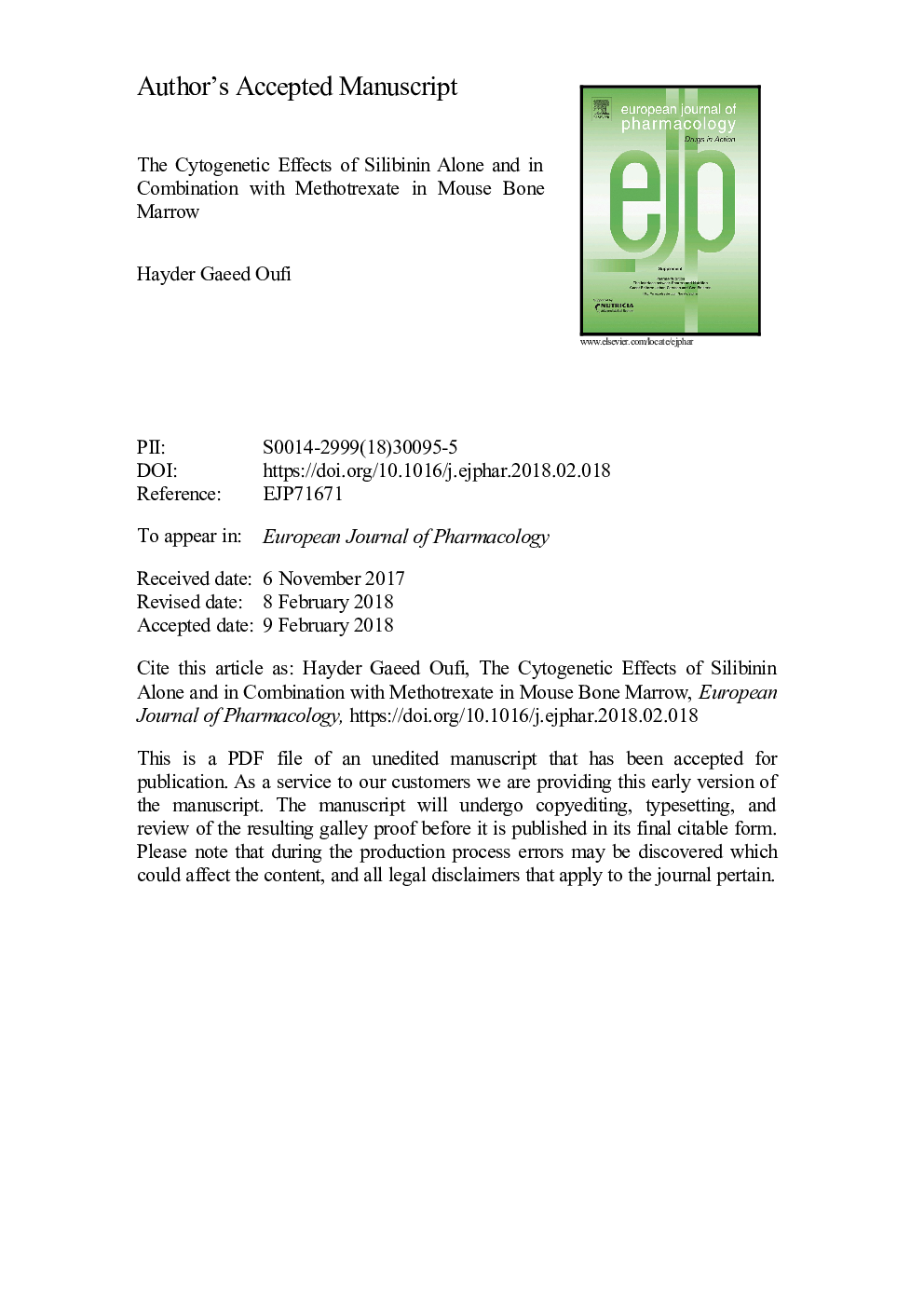| Article ID | Journal | Published Year | Pages | File Type |
|---|---|---|---|---|
| 8529271 | European Journal of Pharmacology | 2018 | 18 Pages |
Abstract
The use of herbal drugs for disease treatment has increased worldwide. Flavonolignan silibinin, the major biologically active component of milk thistle (Silybum marianum), has various biological effects. This study is designed to evaluate the cytogenetic effects of flavonolignan silibinin in mouse bone marrow cells alone and in combination with methotrexate. In this study, the cytogenetic effects of flavonolignan silibinin were observed in mouse bone marrow cells after five days of treatment with a single intraperitoneal (IP) dose of either 50, 100 or 150â¯mg/kg body weight of silibinin hemisuccinate (SHS), alone or in combination with a single dose of 20â¯mg/kg methotrexate (MTX). The end-points were chromosomal aberrations (CAs) and a mitotic index (MI) study 24â¯h after the last dose. SHS (100â¯mg/kg or 150â¯mg/kg) could significantly reduce the MI (Pâ¯<â¯0.05) in a dose-dependent manner. CAs significantly increased when SHS was administered at 150â¯mg/kg. Moreover, the MI significantly increased when SHS was administered prior to MTX at 50â¯mg/kg or 100â¯mg/kg. However, the MI was further reduced at a dose of 150â¯mg/kg. Additionally, SHS could significantly reduce the CAs that were induced by MTX. As a conclusion, Silibinin has a weak clastogenic effect, and in combination with MTX, it can enhance MTX's inhibitory effect on the MI and reduce CAs in bone marrow cells. This finding may direct attention to the beneficial effects of using SHS in chemotherapeutic approaches.
Related Topics
Life Sciences
Neuroscience
Cellular and Molecular Neuroscience
Authors
Hayder Gaeed Oufi,
